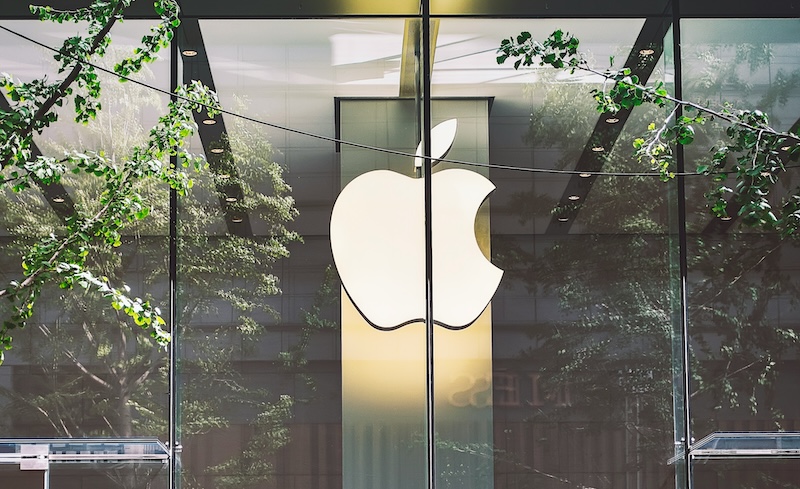LSE politics student Oliver Masson analyses the impact of EU and UK competition regimes against tech monopolies

In September of 2023 the EU passed the Digital Markets Act (DMA), a series of anti-trust legislation aimed at curbing the dominance of large tech firms in the digital sector. This was focused on establishing a set of criteria to regulate gatekeepers (companies that control access to key digital platforms such as app stores and messenger services) and prevent them from monopolising these markets.
The DMA was targeted at six companies: Alphabet, Amazon, Apple, ByteDance, Meta, and Microsoft, with punishments of up to a 10% fine on their annual turnover being threatened. These laws marked a revolutionary step towards encouraging competition in the tech industry, a goal that is also being pursued by other countries across the continent.
Why the digital sector?
Never in the history of competition policy have governments around the world focused so persistently on regulating the same market. This has happened due to the power that companies such as Apple and Alphabet have asserted in the digital sector by effectively building monopolistic control over app stores, mobile payment services, and various other digital platforms. Due to this dominance, these corporations are able to stifle competition through a variety of measures. These include: pricing out smaller companies, creating harsh terms and conditions for developers to introduce their applications onto large digital platforms, and entering into exclusive deals with suppliers to ensure that competitors do not have access to the same resources. Simply put, these tech giants are able to determine which companies succeed in the industry.
The consequences of this are drastic and widespread. Reduced competition stifles innovation, as small companies are unable to introduce novel ideas due to their limited power. Furthermore, monopolistic control limits consumer choice as users are forced to use specific app stores and payment services. These platforms could cost more or have less advanced features than potential alternatives, however the dominance of large tech firms means that they continue to be used. Thus, a monopolistic digital sector harms both consumers and the industry. Therefore, governments, regulators, and competition authorities have become focused on reducing the power of large tech firms.
The DMA in practice
The DMA has made significant strides in doing this, demonstrated by EU antitrust regulators forcing Apple to open its mobile payments system to rival competitors after determining that their current practices violate the protocols of the new law. As a result, the tech firm could be facing significant sanctions. This adds to the company’s existing troubles, having being fined 1.84 billion euros on March 4 for another DMA violation caused by Spotify’s claim that Apple had limited competition from external music streaming sites through placing restriction on them on its App Store.
Apple is not the only company that has been forced to face the music as a result of the DMA, with Microsoft also battling multiple investigations since the laws were passed in September. This began with the company being encouraged to give up its board observer seat at OpenAI as they feared that it contradicted antitrust laws in the UK, US and the EU. These concerns developed due to the possibility that having this position could enable Microsoft to have excessive influence over OpenAI’s strategic decisions, thus stifling the ability of other companies to gain access to the technology. Microsoft is also currently facing investigation by European regulators over accusations that the company is preventing customers from using certain security software provided by other tech firms. This again could result in a major financial penalty.
Want to write for the Legal Cheek Journal?
Find out moreRegulatory measures outside of the EU
Hauling companies to court under the DMA is not the only measure that has been taken in an effort to curb the power of large tech firms, as nations external from the EU have also attempted to do the same. This can be seen in the UK, where the Digital Markets, Competition and Consumers Act (DMCCA) was passed to enhance the Competition and Market Authority’s (CMA) power in cracking down on antitrust violations. The CMA is the UK’s primary regulator, and this law has given them the power to heavily fine tech companies that engage in anti-competitive practices. Furthermore, they have also launched an investigation into Amazon and Microsoft’s extensive control over the nation’s cloud market; these two companies are estimated to own 70-80% of Britain’s public cloud infrastructure services. The CMA aims to curb this dominance.
These efforts by the UK to limit the power of big tech companies highlight the growing continental consensus that steps need to be taken to further regulate the digital sector. However, while revolutionary in many ways, the DMA and the DMCCA are likely to be just the first steps in battling an industry that has become increasingly dominated by monopolies.
The future of tech regulation
Looking forwards, the EIB (European Investment Bank) has called for the EU to do more in addressing the lack of competition in the digital sector. In a recent report they published, the organisation has argued that top-down strategies like antitrust laws are insufficient by themselves. Rather, the EU must also focus on providing greater investment in start-up tech companies if they hope to reduce the dominance of large firms.
Furthermore, there are also hopes for greater transatlantic cooperation regarding the penalising of these digital conglomerates. While American regulators have punished the likes of Google for antitrust breaches, legislators in the US are still yet to pass a law that mirrors the DMA or the DMCCA. This is despite multiple conferences being held involving regulators for the EU, US, and the UK to discuss how to approach this issue. The US is the leading world power in the tech industry, so any drastic chance in this sector requires the commitment of the US as well. Therefore, moving forwards, a key priority for European regulators will be bringing the US further into alignment.
Conclusion
Two decades of relatively unrestricted growth has resulted in large companies dictating the tech industry. Whether that be the dominance of Amazon and Microsoft in the cloud market, or the monopoly Google holds over search engines, competition in the digital sector has hit an all-time low. This has led to a lack of innovation and diminished customer satisfaction within the industry. In Europe this has begun to be addressed; the EU passed the DMA and the UK passed the DMCCA. Both of these laws have worked to crackdown on antitrust violation by large tech companies, with the likes of Apple already being fined 1.84 billion euros for their infractions.
However, this is not yet enough, as more needs to be done globally in order to properly combat the rise of a monopolistic tech industry. This includes greater investment in start-up firms, but also increased international cooperation, especially between the US and the rest of the world. Only through these combined efforts can we foster a more competitive technological landscape that celebrates innovation rather than monopolisation.
Oliver Masson is a second-year politics student at LSE. His interests in commercial law generally focus on litigation, particularly in energy and regulation law. Outside of academia, he’s passionate about football and history.
 (
( (
(

